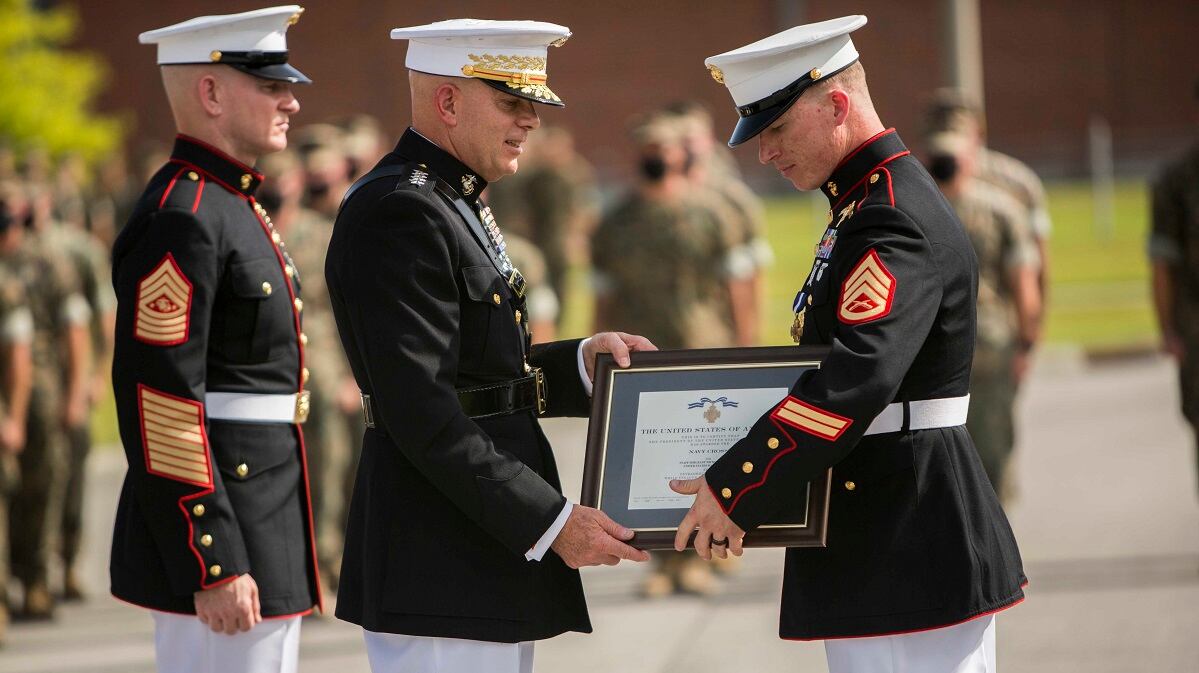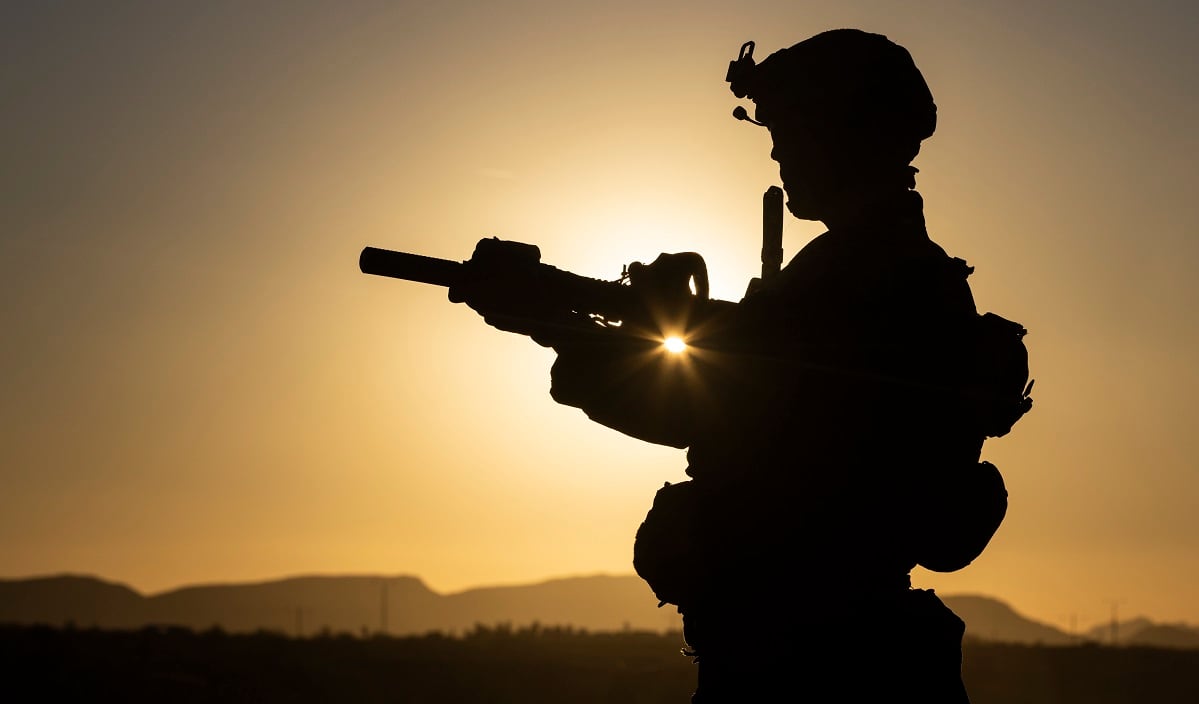On March 8, 2020, Marine Raiders, along with Iraqi special forces and allied special operators, were attempting to clear caves in northern Iraq of ISIS fighters.
As the multinational force moved through the hills on a “warm sunny day,” gunfire and explosions suddenly came echoing through the valley, marking the start of a firefight that would last several hours.
In the opening moments of the fight, two Marine Forces Special Operations Command Marines were killed and a French special operator was wounded.
The intense fight to recover the dead and wounded saw one Marine awarded the Navy Cross, the nation’s second highest award for valor.
Also recognized were four Marine Raiders, who were awarded the Bronze Star with a ‘V’ device. And another Raider received the Navy and Marine Corps Commendation Medal for his actions.
Marine Corps Times obtained citations of these awards, redacted by the Corps to protect the privacy of those still serving in MARSOC.
Here’s what happened that day.
RELATED

‘I heard mass chaos behind me’
“Sunday, March 8, 2020 was a warm sunny day in northern Iraq, and among the beauty was erratic gunfire and explosions echoing through the deep valleys,” Marine veteran Nicholas J. Jones said on Aug. 26 at Camp Lejeune, North Carolina, after receiving the Navy Cross.
On that day, Jones, 29, of Olathe, Kansas, had been an element leader with the 2nd Raider Battalion.
“I heard mass chaos behind me and quick calls coming in through the radio with very little detail, until those piercing calls came through saying an eagle was down,” Jones said. “Something inside told me I needed to go now.”
The eagles that were down were Marine Raiders Capt. Moises A. Navas and Gunnery Sgt. Diego Pongo, who were killed in the fight.
Jones was not the only Marine to recognize the urgency of the radio calls.
A Marine master sergeant “hastily cleared multiple enemy caves while moving quickly to the crisis site,” a redacted version of a Marine’s Bronze Star citation said.
Under enemy fire, he maneuvered across nearly 200 meters of “exposed rugged terrain ... in order to establish a support by fire position to support recovery of two additional casualties.”
Critically low on ammo and water after the seven-hour fight, the master sergeant “exhibited extraordinary endurance, leadership, and fighting spirit throughout the battle,” the redacted citation said.
Another Marine Raider staff sergeant cleared “multiple enemy caves” on his way to the main firefight and to rescue wounded operators, a second redacted citation said.
“He then maneuvered across nearly two hundred meters of exposed terrain under enemy fire in order to establish a support by fire position within 50 meters of the enemy, where he proceeded to support friendly force recovery efforts of two casualties and assisted in temporarily neutralizing an enemy bunker,” the Marine’s Bronze Star citation reads.
While those two Marines moved through caves, another staff sergeant ran down the “extremely steep and rocky terrain” of the northern Iraq mountains, bounding toward the sound of gunfire, the citation said.
After reaching the site he “willingly exposed himself 30 meters away from the enemy and provided covering fire,” to support recovering a wounded operator.
The citation said his actions directly led to saving the operator’s life.
With several key leaders wounded, one Marine Raider staff sergeant took charge of both elements and led them through the seven hour firefight against ISIS.
“Maneuvering through the treacherous terrain to the kill zone,” the staff sergeant “took charge of an element and heroically exposed himself to the accurate enemy fire to aggressively, provide suppressive fires,” the Marine’s redacted Bronze Star citation read.
When the assault leader was wounded in the fighting, the staff sergeant took charge of both elements as they removed the wounded operators and withdrew from position.
“Exhausted, low on ammunition and water, and with key leaders wounded or killed, the Staff Sergeant effectively controlled the assault element as it began exfiltration,” the citation reads.
Though all living Marines successfully made it to the extraction point, the bodies of Pongo and Navas remained trapped down the side of the ravine right under the fortified-ISIS position.
Though he was exhausted, the staff sergeant volunteered to lead the follow-on forces back to the cave to extract the bodies of the killed Marines, the citation said.
He led recovery forces within 50 meters of the fortified enemy positions, “willingly exposing himself to the entrenched enemy position yet again to support the recovery of the casualties,” the Bronze Star citation said.
The forces were eventually able to recover the bodies.
The sole Navy and Marine Corps Commendation Medal awarded in the fight was presented to a Marine Raider staff sergeant who provided suppressing sniper fire during the multiple extraction attempts, according to the redacted citation.
“While exposing himself to the enemy position, he advanced toward the enemy to a more advantageous position to have better effects against enemy positions,” the citation said.
“Over the course of six hours and after being awake for over 24 hours, he continued to suppress the enemy position with precision to permit attempts to recover the casualties until ordered to withdraw,” it added.
The military estimated that between 17–19 ISIS fighters were killed in the operation.





